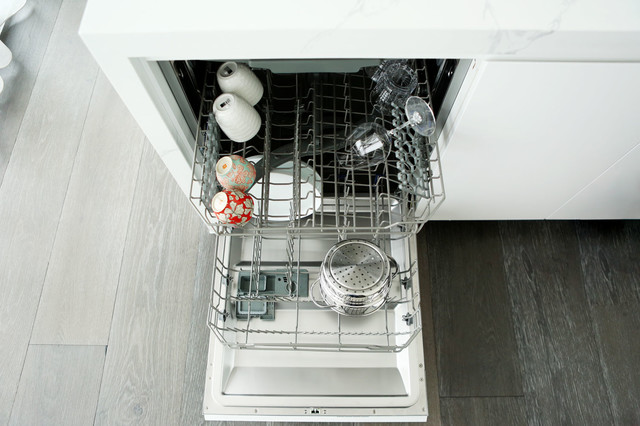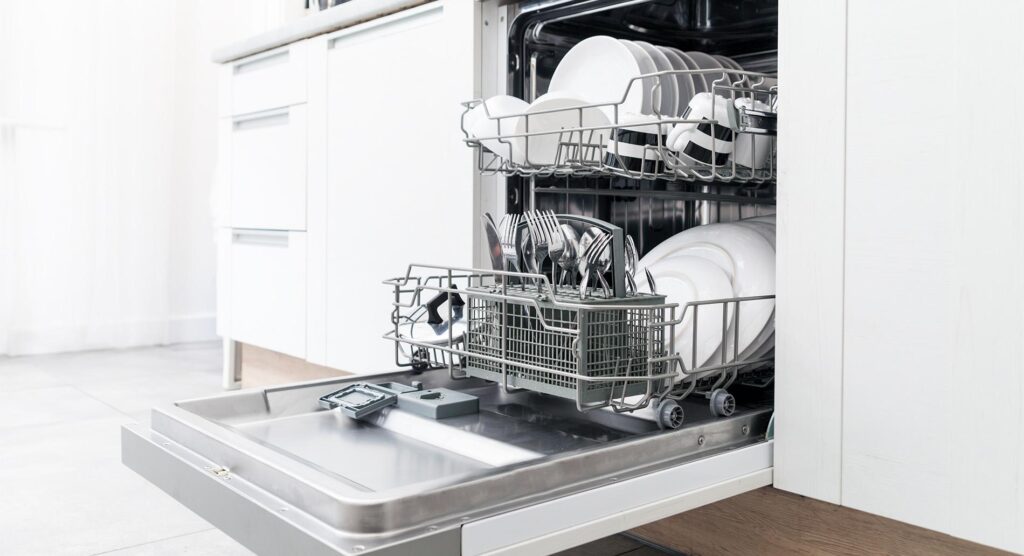Hand-washing dishes has long been considered one of the more tedious, time-consuming household chores. After a busy day, the thought of standing at the sink, scrubbing away grease and food remnants, is often the last thing anyone wants to do. Thankfully, modern conveniences like a dishwasher have revolutionised home cleaning. With just the press of a button, dishwashers handle the mess while giving you back precious time. In this article, we’ll explore the benefits of owning a dishwasher, how to choose the right one, and why it’s a smart investment for any kitchen.
Contents
Choosing the Right Dishwasher

Before you rush to buy a dishwasher, it’s essential to consider a few key factors that will help you make the best choice for your kitchen and lifestyle. Dishwashers come in different sizes and capacities, and with various features to suit different needs.
Size and Capacity
The first consideration when choosing an efficient kitchen dishwasher is size. Choose a dishwasher that fits comfortably in your kitchen without taking up too much space. Consider the available counter space and the size of your household to determine the appropriate size.
Features and Energy Efficiency
Look for a dishwasher with different wash cycles to suit different dish types and cleaning needs. Features like normal, delicate, intensive, and eco-friendly cycles can be beneficial. Consider the drying options available, such as heated air drying or condensation drying. Heated air drying can help ensure dishes are completely dry, while condensation drying can be more energy-efficient. If noise is a concern, look for a dishwasher with a quiet operation. Additionally, consider the vibration level to ensure it doesn’t cause any disturbances in your kitchen.
Features and Benefits of Dishwashers

Dishwashers are much more than a tool for avoiding dish duty, they offer a wide range of benefits that go beyond convenience. From energy efficiency to better hygiene, a dishwasher can enhance your kitchen’s functionality and help you lead a more sustainable lifestyle.
Energy Efficiency
Energy efficiency is an important factor to consider when purchasing a dishwasher. Look for models with energy-saving certifications to reduce your energy consumption and utility bills.
Hygiene and Sanitation
Dishwashers do more than just clean dishes; they sanitise them. With wash cycles that use high-temperature water, a dishwasher eliminates more germs and bacteria than traditional hand washing. This is especially important for items like baby bottles, cutting boards, and utensils that come into contact with raw food. Certain dishwashers also offer a “sanitise” option, which uses even higher heat to kill bacteria, ensuring that your dishes are clean and safe to use. Once you’ve chosen the perfect dishwasher, it’s important to understand how to use and maintain it properly to get the most out of your investment.
Loading the Dishwasher Efficiently
To get the best results, load your kitchen dishwasher correctly. Place larger items like pots and pans on the bottom rack, making sure they don’t block the spray arms. Smaller items, such as glasses and bowls, should go on the top rack. Cutlery should be placed in the designated basket, with knives facing down for safety. Avoid overloading the dishwasher, as this can prevent proper cleaning.
Using the Right Detergent and Rinse Aid
Always use dishwasher-specific detergent, designed to clean efficiently in the machine’s wash cycle. Many dishwashers also benefit from a rinse aid, which helps dishes dry faster and prevents water spots on glassware. Follow the manufacturer’s recommendations for the best results.
Regular Cleaning and Maintenance
Dishwashers require periodic cleaning to keep them functioning properly. Every month, run an empty load with dishwasher cleaner or vinegar to remove any build-up inside the machine. Don’t forget to clean the filter regularly, as food particles can accumulate and reduce cleaning efficiency. Taking these small maintenance steps can extend the life of your dishwasher and keep it working at its best.
Common Dishwasher Problems
While dishwashers are reliable appliances, occasional issues can arise. Some common problems include clogged spray arms, water not draining properly, or dishes not drying completely. These are often simple to resolve with basic maintenance, but it’s important to consult the user manual or call a technician for more complicated issues.
Benefits of Using a Dishwasher

The advantages of owning a dishwasher extend far beyond convenience:
- Time-Saving: With a dishwasher, you can save hours of manual labour each week. Load the machine, press start, and let it do the work while you enjoy your free time.
- Hygiene: High-temperature wash cycles sanitise your dishes, making them cleaner than hand-washing can achieve.
- Energy and Water Efficiency: Dishwashers are designed to use less water and energy, reducing utility costs while being environmentally friendly.
- Convenience: With various wash cycles and settings, you can choose the best option for each load, whether you need a quick rinse or a deep clean.
The Final Word
A dishwasher is a game-changer for anyone looking to simplify their daily routine. With benefits ranging from time-saving convenience to improved hygiene, dishwashers take the hassle out of cleaning up after meals. If you’re tired of hand-washing and want to reclaim your time, it might be time to consider purchasing a dishwasher. With a wide variety of dishwashers for sale and models to fit every need, there’s never been a better time to invest in this essential kitchen appliance. Equipping your kitchen with essential utensils, you can streamline your cooking process and enjoy preparing delicious meals with ease.











